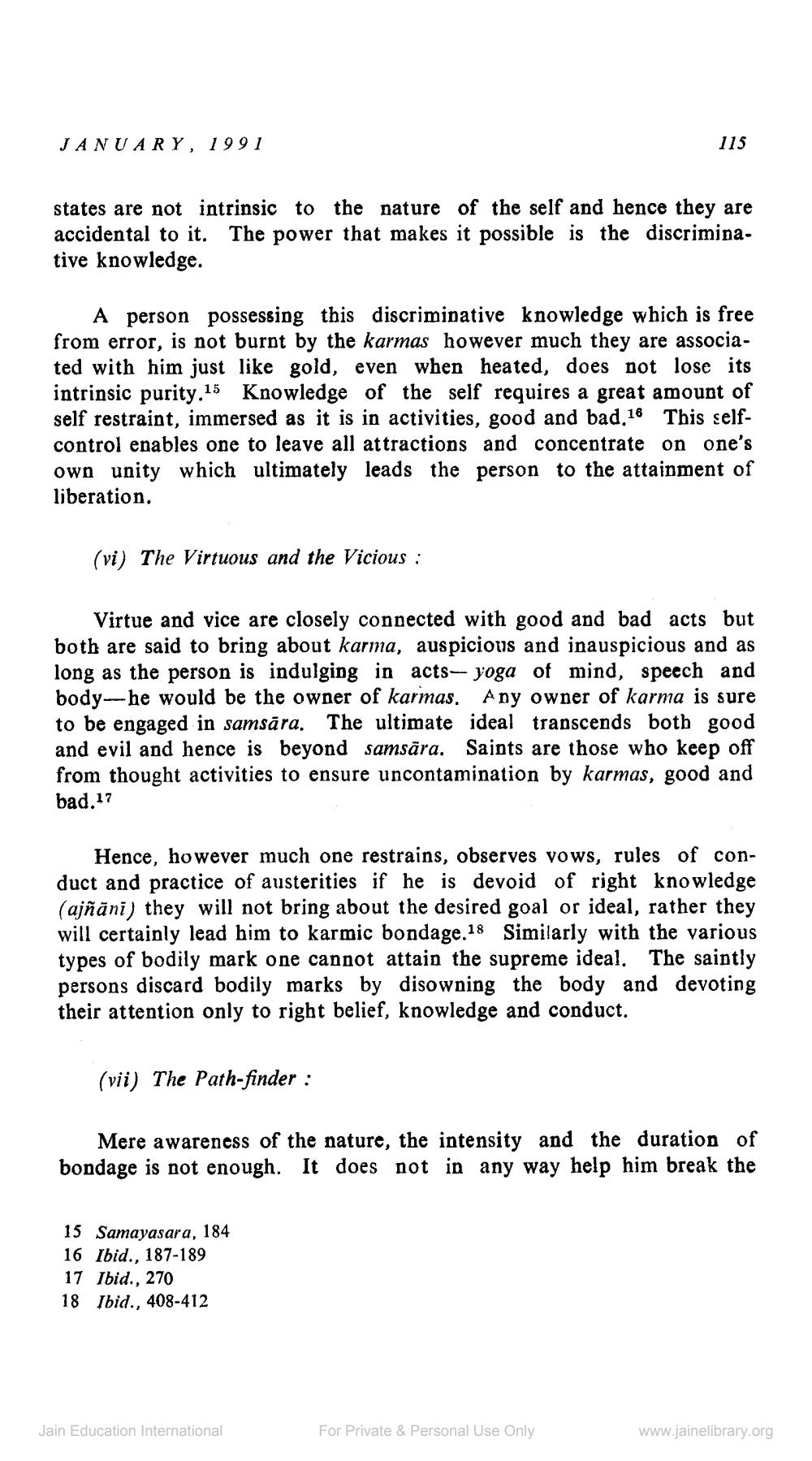________________
JANUARY, 1991
115
states are not intrinsic to the nature of the self and hence they are accidental to it. The power that makes it possible is the discriminative knowledge.
A person possessing this discriminative knowledge which is free from error, is not burnt by the karmas however much they are associated with him just like gold, even when heated, does not lose its intrinsic purity.15 Knowledge of the self requires a great amount of self restraint, immersed as it is in activities, good and bad 16 This selfcontrol enables one to leave all attractions and concentrate on one's own unity which ultimately leads the person to the attainment of liberation.
(vi) The Virtuous and the Vicious :
Virtue and vice are closely connected with good and bad acts but both are said to bring about karma, auspicious and inauspicious and as long as the person is indulging in acts, yoga of mind, speech and body-he would be the owner of karmas. Any owner of karma is sure to be engaged in samsāra. The ultimate ideal transcends both good and evil and hence is beyond samsāra. Saints are those who keep off from thought activities to ensure uncontamination by karmas, good and bad.17
Hence, however much one restrains, observes vows, rules of conduct and practice of austerities if he is devoid of right knowledge (ajñāni) they will not bring about the desired goal or ideal, rather they will certainly lead him to karmic bondage.18 Similarly with the various types of bodily mark one cannot attain the supreme ideal. The saintly persons discard bodily marks by disowning the body and devoting their attention only to right belief, knowledge and conduct.
(vii) The Path-finder :
Mere awareness of the nature, the intensity and the duration of bondage is not enough. It does not in any way help him break the
15 Samayasara, 184 16 Ibid., 187-189 17 Ibid., 270 18 Ibid., 408-412
Jain Education International
For Private & Personal Use Only
www.jainelibrary.org




